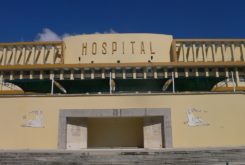Among African countries, Mozambique was always considered an example of good governance by foreign donors. They supported the country by putting financial resources into its budget and many social programs.
This relation soured two years ago, with the discovery of debts previously undisclosed to donors. They swiftly suspended financial backing, generating economic and financial hardship. But support is, timidly and steadily, returning to the country.
Initially, donors demanded an independent audit and “accountability” of the hidden debts; this suggested politically destabilising judicial accusations against government members at the time the credit was obtained from VTB Bank (Russia) and Credit Suisse (Switzerland). Now a new environment of realism and pragmatism is emerging, according to political sources in Maputo.
One reason for this reassessment is the belief that the current balance of forces within Frelimo prevents president Filipe Nyusi from forcing accountability from former members of the government of Armando Guebuza in the case of the debts, without risking the country´s stability.
The main internal ally of Nyusi is General Alberto Chipande; he has been frequently absent from party meetings due to health issues. Nyusi needs unity between all the wings of the party to confirm his candidacy for the 2019 presidential elections.
Among foreign partners, the perception has been growing that the consequences of the current economic difficulties are being felt particularly among the most disadvantaged members of the population. A substantial worsening of living conditions for these people has the potential to cause serious insecurity, such as the 2008 and 2010 riots.
The health sector is of particular concern; the main financing instrument of the public health system, which includes the principle of free healthcare, is from donors through the Prosaude fund.
Another key calculation for foreign donors is, of course, natural gas, with Mozambique expected to become a key international energy player in the next four to five years, and a major exporter of this commodity to Asia.
The normalisation of relations with the Mozambican government allows the respective countries to have their national companies participate in the future – and profitable – development of the natural gas and oil industry, as well as other related activities like mining, industry and infrastructure.
The consequence of this realism among partners has been the resumption of support, on different conditions, and somewhat off the radar. The European Union (EU), whose head of mission Sven von Burgsdorff is leaving Maputo soon, and the World Bank (WB) have been leading the process of resumption of support.
Over 290 million euros were made available by the EU for direct support for projects in Mozambique in the next two years; the support will not be channelled via the state budget, as it was until 2016, before the debts were disclosed. They totalled about US$2.2 billion in three state companies with links to the security sector — EMATUM, MAM and Proindicus.
As to the World Bank, it is increasing funding by 158 million dollars, already half the amount granted in 2016.
For the rapprochement with donors, in particular the EU, Nyusi´s government has had the support of countries like Italy, whose energy company is a key natural gas player, and of the Portuguese prime minister, António Costa, who in his visit to Maputo in July reiterated that future bilateral relations cannot be decided by the “past”.
However, the resumption of support is conditional on the level of indebtedness reached by the Mozambican state, now at high levels; this was a reason invoked by the African Development Bank (ADB) to limit its financing to the country to US$79 million in the 2017-2019 period.
The ADB conditions a fund increase in the post-2020 period to the government’s implementation of fiscal consolidation measures and negotiations with creditors on debt restructuring; it is also contingent on the inflow of natural gas revenues.
The International Monetary Fund (IMF) has also taken a critical stance on how the authorities dealt with the case of the debts. The most recent technical mission to the country ended without any progress on the resumption of the IMF programme.
The IMF´s hard-line has been consistent since the hidden debts crisis and the findings of an independent audit by Kroll that the lack of information from the government contributed to the limited results of the audit.
To cope with the financial constraints and the growing public deficit, the government has resorted to domestic financing through bond issues. Positive results by Mozambican banks in the last year are a result of high interest rates from the credit granted to the Mozambican state.
The latest projection of gas revenues presented to Mozambican creditors by the government, with the support of international advisers (Lazard Frères SAS and White & Case LLP), outlines optimistic scenarios of the size of the gains for the state with the natural gas (LNG) exploration in the Rovuma Basin.
For Rovuma Area 4, the only project with Final Investment Decision already under way, by the consortium led by Eni, the start of production is now expected in the last quarter of 2022.
The first revenues for the state are estimated at about US$100 million in 2023, rising steadily to over US$2 billion per year after 2032. Over the lifetime of the project, the state is expected to earn US$49.4 billion dollars – US$38 billion from Area 1 and US$11.5 billion from Area 4 by 2048.
Lenders have reacted differently to the official projections for LNG, which will serve as a basis for debt renegotiation. VTB, with the participation of the Russian State, is opting for government negotiation, in which José Pacheco (JP), Foreign Minister, has played a central role. Government sources insist that Russia does not express urgency in repayment and even is open to buying all the debt, including the part arranged by Crédit Suisse. However, a possible agreement in this respect is still far from being achieved.
The Global Group of Mozambique Debt Holders, which accounts for more than 80% of the total of US$727.5 million issued in 2016, has been more cautious.
In London, the Jubilee Debt Campaign is lobbying for a declaration of the debts as illegal; this now has the support of the UK Labour Party.
Labour parliamentarians recently visited Maputo in their campaign against debt repayment, and scheduled meetings with government officials, civil society and donors.
The government does not intend to claim the debt as illegal, but sees in the British campaign an opportunity to promote the haircut proposed in March by Finance Minister Adriano Maleiane – a cut of 50% of the debt in default, which is US$636 million.



